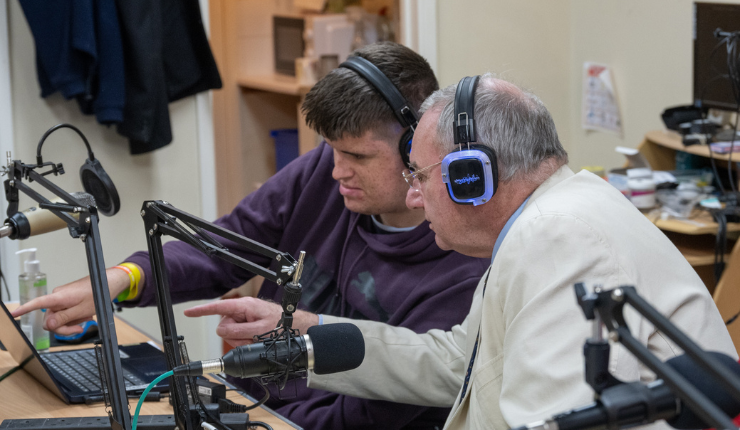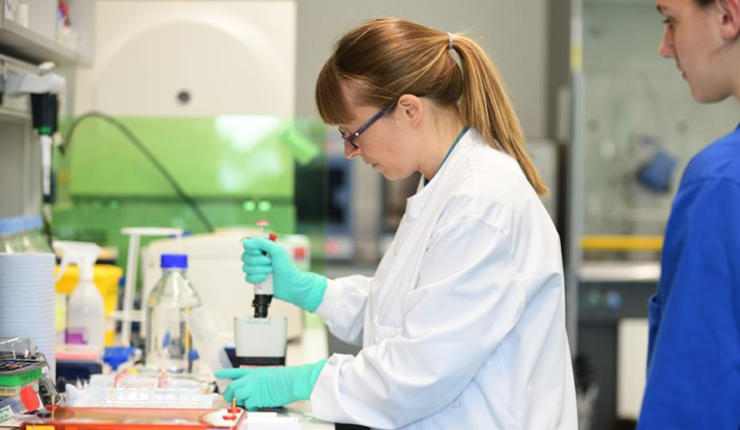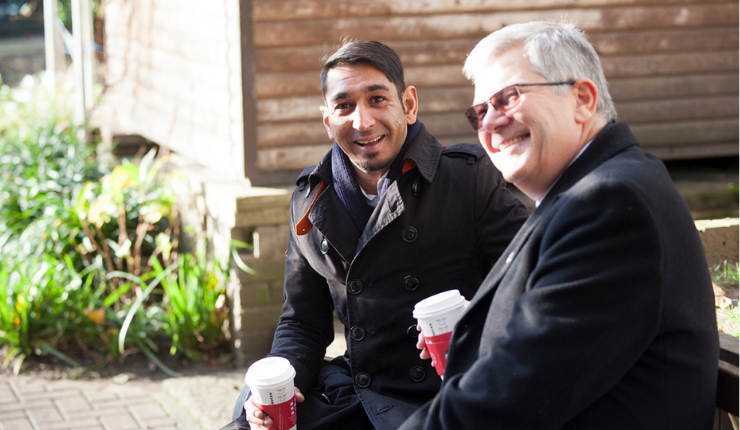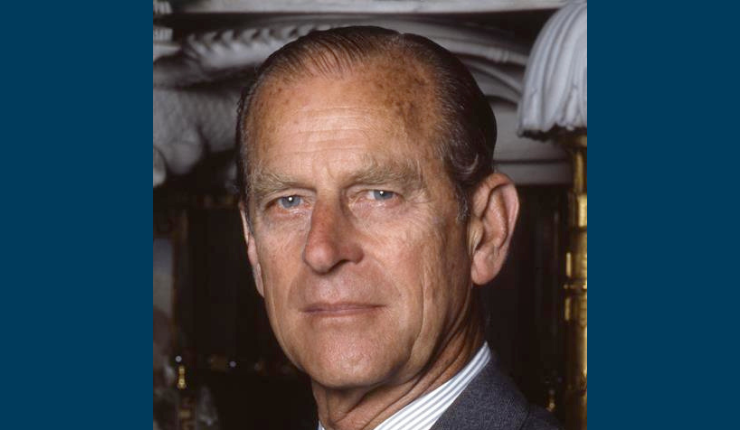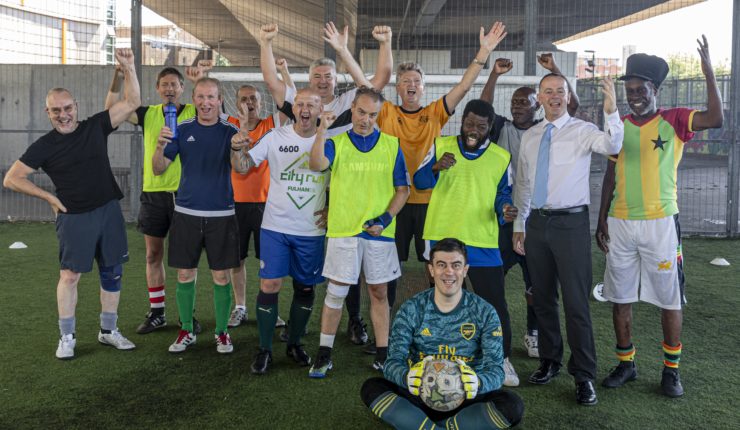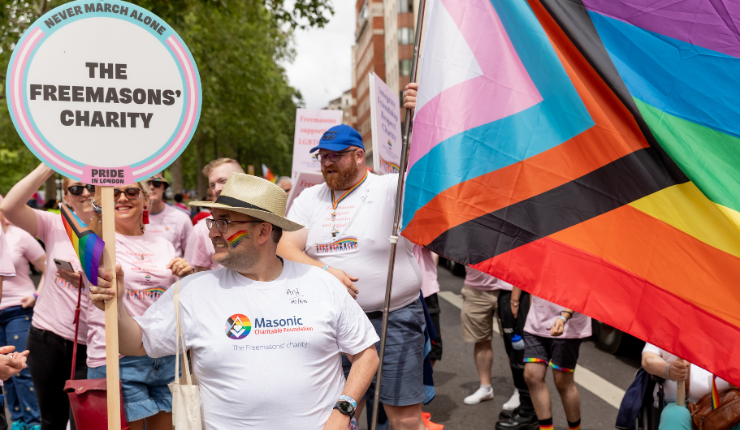Cancer, Grants to charities
Support for older men with prostate cancer
Hundreds of men diagnosed with prostate cancer will be given practical and emotional help and support thanks to a grant of £51,000 from Freemasons to Maggie’s charity.
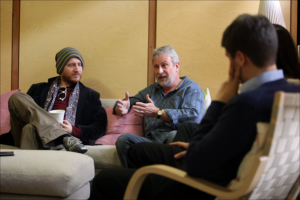
A cancer diagnosis can cause huge emotional and physical challenges that men find difficult to share with even their closest friends and family. With no-one to turn to this can lead to feelings of isolation.
As a result, Maggie’s has designed the ‘Living With and Beyond Prostate Cancer’ workshops. These tailored courses provide information and practical help on issues such post-treatment challenges, managing fatigue, relaxation techniques, weight control, nutrition, regaining physical fitness, dealing with urinary problems, sexual dysfunction and relationship issues.
The programme aims to give people relevant information and advice in a safe supportive environment to help reduce the distress and anxiety associated with cancer treatment, give back some control, and reduce feelings of loneliness.
In addition to Maggie’s Cambridge the programme is also be run at Barts (City of London), West London, Manchester, Oxford, Swansea and the Wirral.
Prostate cancer is the most common cancer in men over 65 in the UK and, as the ageing population grows, is expected to be the most commonly diagnosed cancer overall by 2030. Survival rates have increased over the past ten years, coupled with an increase in diagnoses which means more men are living with prostate cancer for longer. As a disease more prevalent in older men, diagnosis often comes when they are undergoing other big life changes, often upsetting plans for the future.
The grant from Cambridgeshire Freemasons comes through the Masonic Charitable Foundation, which is funded by Freemasons, their families and friends, from across England and Wales.
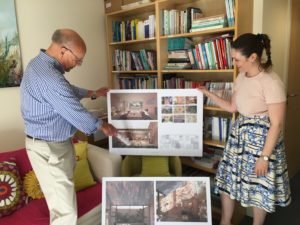
Freemason, Tony Just, and Campaign Manager, Andrea Chupacova, at the Maggie’s Library
We’re very grateful to Cambridgeshire Freemasons for their generous grant, which will help us provide much needed emotional and practical support to older men diagnosed with prostate cancer. Men generally, and older men in particular, are usually less emotionally expressive then women and tend to need more support as a result. Our professionally led groups are specially designed to provide the care these men need.
I’m very pleased we’ve been able to help Maggie’s with their hugely important programme of practical support for men with prostate cancer. As well as helping to tackle this very serious condition, we’ve also made it a priority to help older people who are lonely and isolated. Maggie’s excellent project covers both of these key priorities.
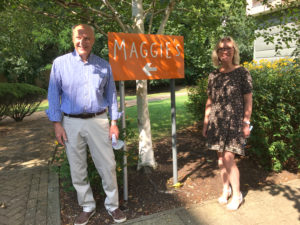
Freemason, Tony Just, with Maggie’s Cambridge Centre Head, Lisa Punt
